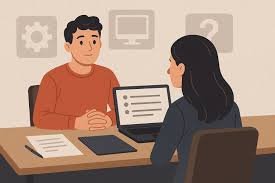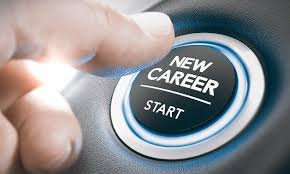
The 'Lunch and Learn' Effect: Turning Casual Meetings into Powerful Mentorship Opportunities
The 'Lunch and Learn' Effect: Turning Casual Meetings into Powerful Mentorship Opportunities
In the modern workplace, the most valuable career lessons often don't happen in formal training sessions or annual reviews. They happen in the organic, slightly awkward space between tasks—the impromptu coffee break, the casual chat by the water cooler, or, most effectively, the Lunch and Learn.
The "Lunch and Learn" is traditionally a company-sponsored event where an expert presents on a topic during the lunch hour. But the true power of this concept extends far beyond catered sandwiches and PowerPoint slides. It represents a powerful, often untapped opportunity for informal mentorship and strategic networking.
By reframing these casual, low-stakes meetings—whether they're official company events, one-on-one meals, or small group discussions—you can transform routine breaks into potent learning experiences that accelerate your professional growth. This is the Lunch and Learn Effect: leveraging casual environments to access high-value knowledge and forge lasting mentorships.
Phase 1: Preparation—Mastering the Informational Lunch
The success of a mentorship meeting, even an informal one over a meal, lies in preparation. You must treat it not as a date, but as an informational interview where the currency is respect for their time.
1. Identify Your Target (The "Why")
Don't just ask the most senior person to lunch. Identify someone whose career path, specific skill set, or industry knowledge directly addresses a gap in your own development.
-
Be Specific: Do you want to learn how they successfully launched a new product line? How they navigate remote team management? Or how they transitioned from a technical role to a leadership position? Know your why before you send the invitation.
2. Craft the Perfect Ask (The Invitation)
Keep your request professional, brief, and clear. Emphasize that you are seeking their wisdom, not their time for free labor.
-
Focus on a Specific Topic: Instead of asking, "Can I pick your brain?", ask: "I’ve been deeply impressed by the recent success of the [Project Name] launch. I’d be grateful for 30 minutes of your time to hear your thoughts on the initial user testing process you implemented."
-
Offer to Pay: Always initiate the offer to buy their coffee or lunch. This shows respect for their time and positions you as the recipient of the favor.
3. Research Beyond Google (The Context)
Before the meeting, research their background on LinkedIn, read any articles they’ve written, and understand the projects they've led. This allows you to ask insightful questions and avoids wasting their time on easily searchable facts. The goal is to move the conversation from "What do you do?" to "How did you do it?"
Phase 2: Execution—Maximizing the 30-Minute Window
A lunch meeting is a finite resource. Every minute should be geared toward learning and relationship building.
1. Lead with Gratitude and Intent (The Opener)
Start the conversation by sincerely thanking them and quickly stating your objective.
-
Example Opener: "Thank you so much for taking the time. I know you're busy. I’m hoping to use this time to learn about your experience structuring cross-functional teams, as that's a skill I'm trying to develop this year."
2. Ask Quality, Open-Ended Questions (The Core)
Avoid yes/no questions. Use open-ended questions that prompt storytelling and reflection, which are rich in nuanced advice.
-
Poor Question: "Did you ever have budget issues on Project X?"
-
Powerful Question: "Looking back at Project X, what was the single biggest unforeseen cultural challenge you had to overcome, and what decision are you most proud of making to solve it?"
-
Active Listening: Don't spend the time thinking about your next question. Listen intently, take mental or brief physical notes (only if they are talking), and acknowledge their advice.
3. Connect the Dots to Yourself (The Vulnerability)
The mentorship relationship deepens when you share a brief, relevant struggle of your own. This shows you are serious about applying the advice.
-
Example: "That's incredibly helpful. We're facing a similar issue now with our vendor selection process. Based on your experience, do you think prioritizing the vendor's long-term partnership vision over their initial low-bid cost is the right move for long-term project success?"
Phase 3: Follow-Up—Converting the Lunch into a Lasting Connection
A great meeting means nothing without a strategic follow-up. This is how you convert a one-time lunch into a valuable, sustained mentorship relationship.
1. The Prompt, Personalized Thank-You (The 24-Hour Rule)
Send a follow-up email within 24 hours. This email should do two things:
-
Acknowledge Specific Advice: Reference a specific piece of wisdom they shared (e.g., "I especially appreciated your point about always prioritizing long-term vendor vision...")
-
State an Action Item: Tell them how you plan to use their advice (e.g., "I'm implementing your suggestion immediately by rewriting our next project charter to include a dedicated risk mitigation phase."). This proves the value of their time.
2. Close the Loop (The Proof of Impact)
This is the most crucial step of the Lunch and Learn Effect. Several weeks or months later, send a short email updating them on the success of the advice you implemented.
-
Example: "I wanted to circle back on our chat a month ago regarding the vendor selection process. We took your advice, went with the long-term partner, and that decision has already paid off, saving our team three weeks of onboarding time. Thank you again for the invaluable perspective."
This "closing the loop" validates their investment in you and makes them far more likely to engage with you in the future, transitioning the relationship from a networking contact into a true mentor/mentee dynamic. It shows that you are a learner who acts on advice.
By adopting the Lunch and Learn mindset, you recognize that every coffee, lunch, or brief meeting is a chance to gather intelligence, refine your strategy, and build a powerful, supportive network that will serve as the foundation for your career advancement.
FAQs on Mentorship Through Informal Meetings
1. How often should I "check in" with a mentor after the initial meeting?
Avoid scheduling follow-ups or check-ins simply to "touch base." Only reach out when you have a specific, actionable item to share (closing the loop on advice) or when you have a specific, high-value question that relates to their expertise. A good frequency for high-value contact is every 2-4 months. Quality of contact is always more important than frequency.
2. What if I work remotely and can't meet for lunch?
The Lunch and Learn Effect is easily replicated remotely. Suggest a 30-minute virtual coffee or video chat instead of a meal. The core principles remain the same: high-quality preparation, focused questions, gratitude, and prompt follow-up. In fact, remote formats often make it easier to schedule a brief call, as it eliminates travel time.
3. What should I do if the person I invite says "no"?
Respect their decision immediately. Do not push. Their refusal is not a rejection of you, but of their current capacity. Simply reply with: "Thank you for the quick reply. I completely understand. If your schedule opens up later this quarter, please let me know. In the meantime, I’ll continue to follow your work on [Specific Project]." You leave the door open professionally without pressuring them, which often impresses them more than the lunch itself.




